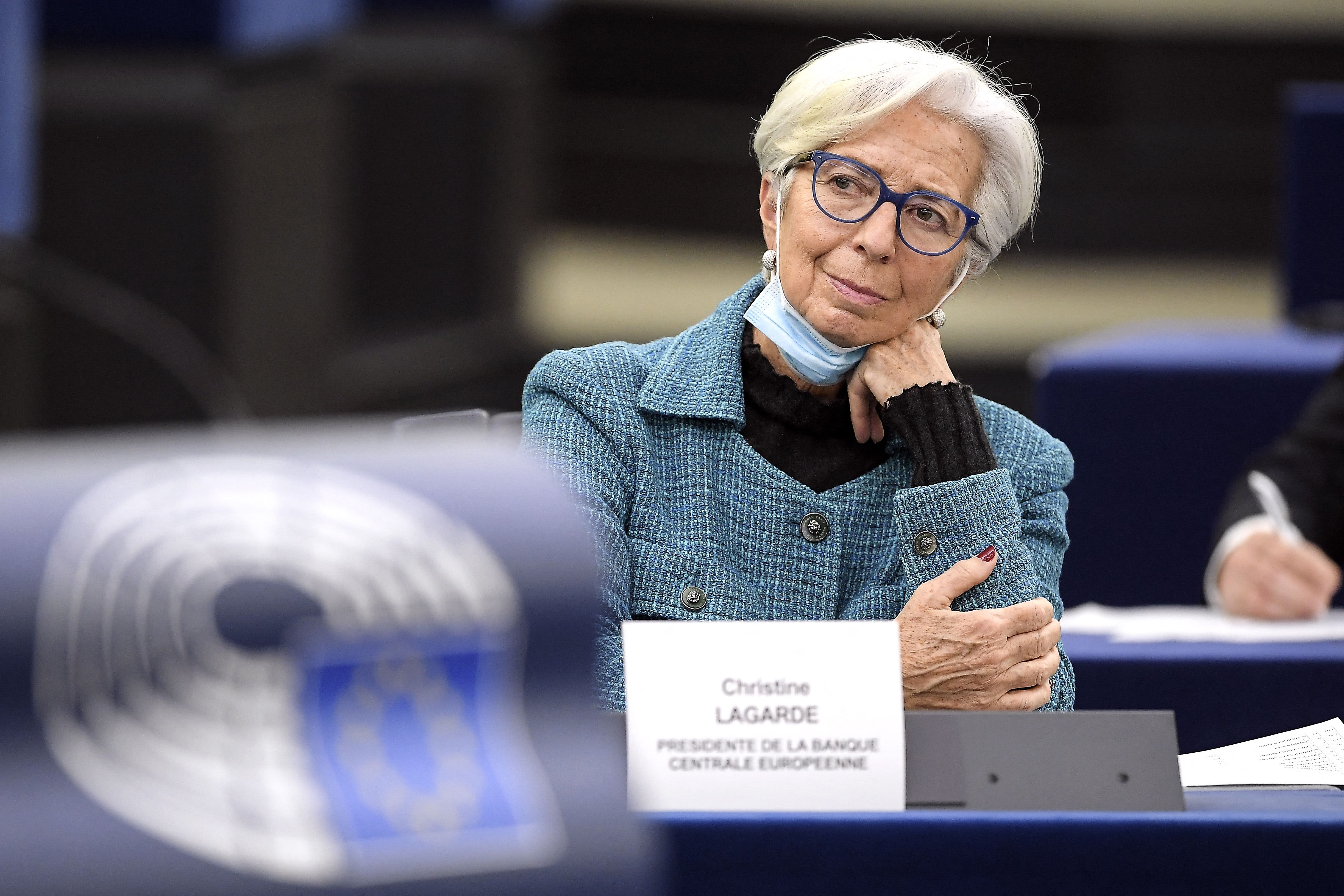
European Central Bank President Christine Lagarde attends a debate during a plenary session at the European Parliament on February 14, 2022 in Strasbourg, eastern France.
Frederick Florin | Afp | Getty Images
LONDON — The European Central Bank on Thursday announced it will wind down asset purchases faster than planned as it assesses the economic fallout from Russia’s invasion of Ukraine.
The central bank said in a statement that it would aim to end its bond-buying program in the third quarter. It added that it stands ready to revisit this decision if the outlook changes.
“If the incoming data support the expectation that the medium-term inflation outlook will not weaken even after the end of our net asset purchases, the Governing Council will conclude net purchases under the APP in the third quarter,” the bank said, referring to its asset purchase program.
It said monthly net purchases under the program would amount to 40 billion euros ($44.5 billion) in April, 30 billion euros in May and 20 billion euros in June.
The central bank kept interest rates unchanged Thursday, leaving the benchmark refinancing rate at 0%, the rate on its marginal lending facility at 0.25% and the rate on its deposit facility at -0.5%.
Market participants will be closely monitoring ECB President Christine Lagarde’s press conference at 1:30 p.m. London time for hints about Europe’s growth prospects given the escalating crisis.
The euro was trading around $1.1079 after the decision, little changed for the session. The common currency rose 1.6% on Wednesday to register its steepest daily jump in almost six years.
The ECB described Russia’s conflict with Ukraine as “a watershed for Europe,” while the Governing Council reaffirmed its pledge to “take whatever action is needed” to pursue price stability and to safeguard financial stability.
The ECB’s meeting in Frankfurt, Germany comes exactly two weeks after Russian President Vladimir Putin launched a full-scale invasion of Ukraine. The conflict has rattled the global economy and sent shockwaves through financial markets, with Western allies imposing a barrage of sanctions against Russia.
Energy and commodity prices have soared as the Kremlin steps up its onslaught on Ukraine, prompting concern among economists that the euro zone economy could face a stagflationary shock. This refers to the toxic cocktail of sluggish economic growth and high inflation.
‘Completely backwards’
The ECB’s decision to wind down asset purchases sooner than planned came as a surprise to markets. Analysts had broadly expected the central bank to hold off on any policy announcements until it could better understand the economic impact of the Ukraine crisis.
“I think what Christine Lagarde and the ECB governing council have managed to do is to buy themselves some flexibility here,” Megan Greene, global chief economist at the advisory firm Kroll Institute, told CNBC on Thursday.
“They’ve accelerated the wind down of the asset purchase program, but they’ve also put some water between when they finish tapering and when they start hiking rates, which gives them a lot of flexibility in terms of pivoting as data comes out.”
Greene said, however, that in her view “the ECB is doing this all completely backwards” and should have been looking at interest rate moves before tapering asset purchases.
“Their asset purchase program is the only way that the ECB can really realistically address fragmentation in the euro zone. And now the euro zone’s facing another asymmetric hit to its member state economies,” Greene said.
She added that it will be “really hard” for the ECB to fire up its asset purchase program again if its need to.
Consumer prices in the 19 countries that use the euro currency have climbed to record highs for four consecutive months, most recently hitting 5.8% in February. The ECB is targeting 2% inflation over the medium term.
It is also feared the Ukraine conflict could cause further problems for supply chains already disrupted by the coronavirus pandemic, negatively impacting economic growth alongside soaring oil and gas prices.
A Reuters poll in early March found the majority of economists expect the ECB to wait until the final few months of the year to raise interest rates. However, there is currently no consensus on the month that the central bank could bring an end to its asset purchase programme.




